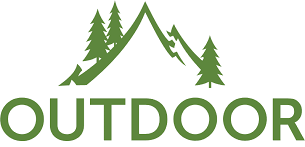Knowing that the connection between hunting and conservation can seem to be counterintuitive, IUCN has developed a number of infographics to help the general public, particularly non-hunters, better understand hunting and hunters. In fact, the beliefs of today’s socially and environmentally conscious society are closely related to that of hunters’. To assist demonstrate this, IUCN made a decision to address five things “You may be surprised to learn about hunting, ” which is the title of the campaign involving five helpful infographics.
Hunting aids environmental preservation
Hunter-supported taxes on equipment and license fees have afforded wildlife agencies the money to be able to acquire and maintain land for the conservation of game and non-game species. This land also provides space for outdoor recreational activities such as hunting, fishing, hiking, kayaking, camping and more.
Hunters support regulations
Sportsman demonstrate their respect for regulated hunting by taking hunter safety education classes, pursuing the rules of honest hunting, and adhering to regulations, seasons and allow procedures that vary from condition to state and types to species in order to help strategically deal with wildlife.
Hunters helped save wildlife populations
Hunters helped create a sustainable conservation model allowing Americans to participate in regulated hunting that supports the conservation of wildlife. This model, which was so successful it has been adopted around the world, has helped restore species such as Wild Turkeys, Rocky Mountain Elk and others, some that were on the brink of vanishing forever.
Hunting provides nutritional alternatives
Predators helped create a lasting conservation model allowing People in america to participate in regulated hunting that supports the conservation of wildlife. This model, which was so successful it has been adopted around the world, has helped restore species such as Wild Turkeys, Rocky Mountain Elk and others, some that were on the brink of vanishing forever.
Hunting is a vital part of wildlife conservation
Hunting is an extremely regulated tool that has an important role in wildlife management. Biologist review wildlife populations, habitats and food, then use legislators to determine policies on hunting that could keep wildlife populations in balance, as well as promote progress and breeding, as habitat allows.
Hunting can be difficult to comprehend, but NSSF encourages you to check out these infographics to obtain a much better understand of its benefits. Would you care about the surroundings, land preservation, animal conservation and personal nourishment? You’ll be able to support hunting.


